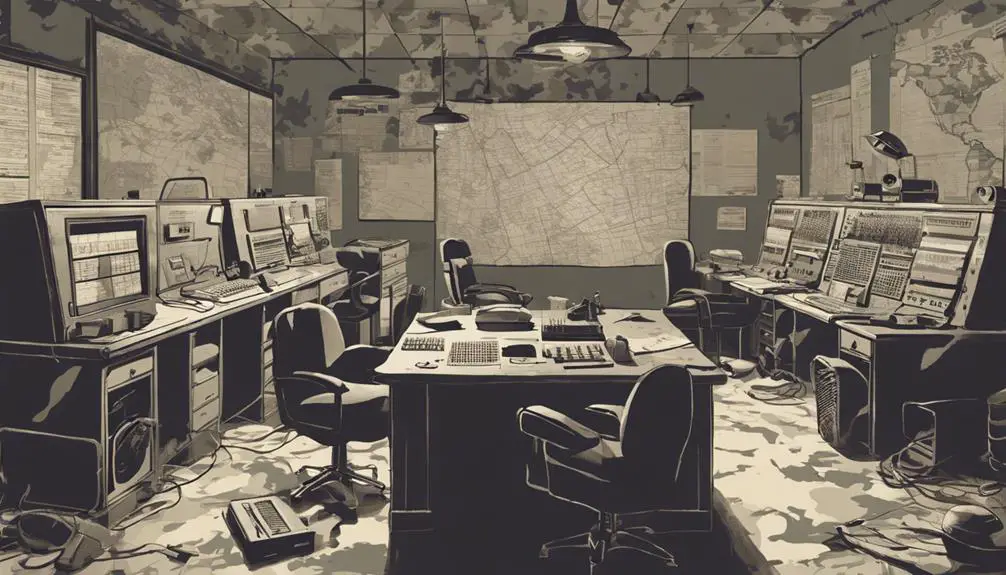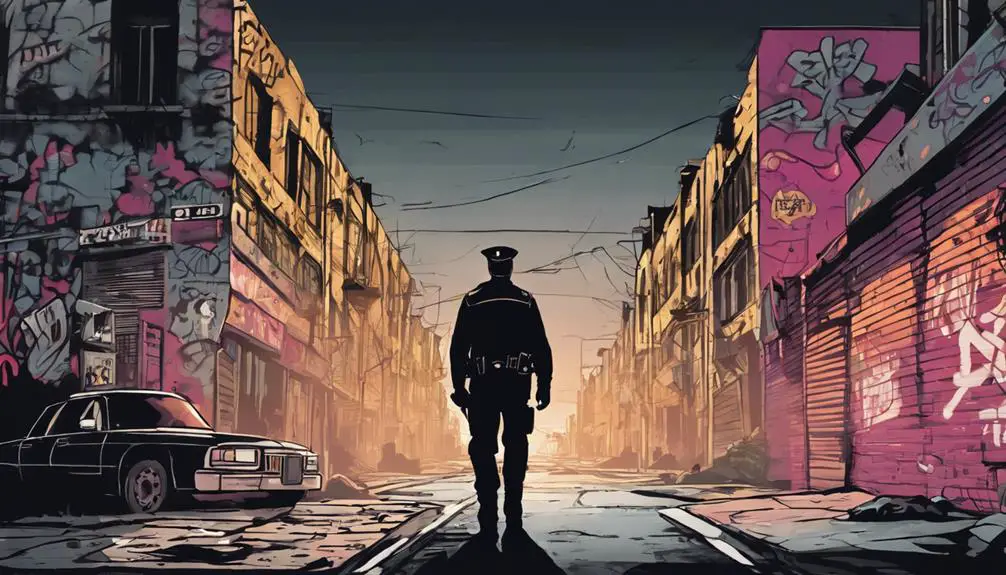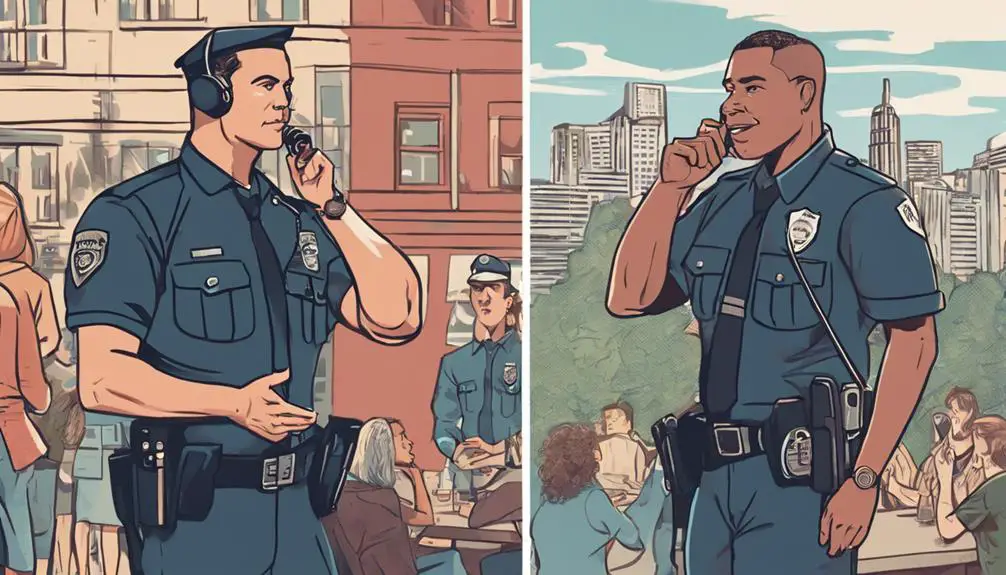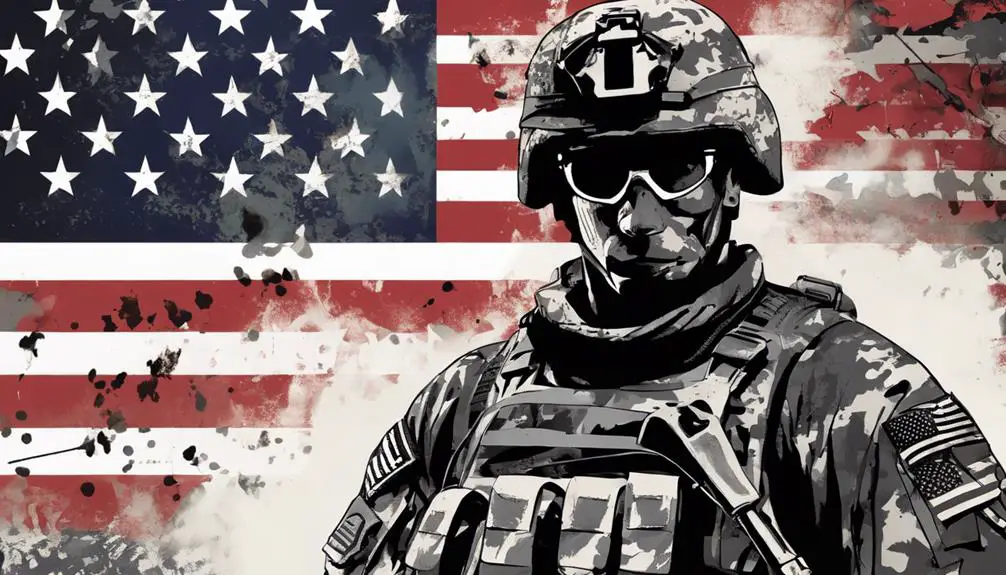You've noticed that police officers often use terminology borrowed from the military, and it's not just a coincidence – the language and culture of law enforcement have been deeply influenced by military slang. Soldiers bringing military jargon to police forces, and similar structures between police departments and the military have contributed to this phenomenon. Surplus military equipment transferred to police departments has also played a role. As you explore the world of cop military slang, you'll discover how it shapes law enforcement culture and community policing efforts – and how it can either build or break trust with the communities they serve.
Origins of Cop Military Slang

Since the early 20th century, police departments have borrowed military slang, a practice that continues to influence law enforcement culture today. You might wonder why cops use military terminology. The answer lies in the historical roots of this linguistic evolution.
During World War I, many soldiers returned home and joined police forces, bringing their military jargon with them. As they rose through the ranks, their language influenced police culture. This exchange of terminology was further facilitated by the fact that many police departments were modeled after military structures.
As you explore the origins of cop military slang, you'll discover that it wasn't limited to the US. In the UK, for instance, police forces adopted military terminology during World War II. This cross-pollination of language was a natural result of the close collaboration between law enforcement and the military during wartime.
Over time, this linguistic evolution has shaped the way police officers communicate, often using military-inspired phrases to describe their daily operations. Understanding the historical roots of cop military slang helps you appreciate the complexities of law enforcement culture and its ongoing relationship with the military.
Militarization of Police Forces
As you explore the world of law enforcement, you'll notice that police departments have increasingly adopted military tactics, equipment, and mindset, a phenomenon known as the militarization of police forces. This trend has led to concerns about police brutality and racial tensions. The 1033 program, which allows police departments to acquire surplus military equipment, has contributed to this militarization. Additionally, the rise of SWAT teams has further blurred the lines between law enforcement and the military.
| Factor | Description | Impact |
|---|---|---|
| Surplus Equipment | Military equipment transferred to police departments | Increased militarization |
| SWAT Teams | Specialized units for high-risk situations | Enhanced police capabilities |
| Federal Funding | Grants for counter-terrorism and drug enforcement | Incentivizes militarization |
| Police Brutality | Excessive force used against civilians | Racial tensions and mistrust |
The militarization of police forces has sparked controversy, with some arguing it's necessary for public safety, while others see it as a threat to civil liberties. As you investigate further into the world of cop military slang, it's crucial to understand the context in which it emerged.
Language of the Streets

You're likely familiar with the idea that language can be a powerful tool, and in the world of law enforcement, the language of the streets can be particularly influential, shaping the way officers interact with the communities they serve.
This urban vernacular, often referred to as 'street smarts,' is essential for effective communication and building trust with the public. As you navigate the complexities of policing, understanding the nuances of street language can be a valuable asset, helping you to better connect with the people you're sworn to protect and serve.
In this context, street smarts go beyond mere language skills; they encompass a deep understanding of the cultural nuances and social dynamics that define a community. By speaking the language of the streets, officers can establish a sense of rapport with residents, facilitating more effective community policing initiatives.
Additionally, being attuned to the urban vernacular can help you identify potential issues before they escalate, allowing for more targeted interventions and improved community relations. As you continue to serve and protect, developing your street smarts will become an indispensable part of your toolkit.
Copspeak and Its Evolution
Law enforcement's distinctive lexicon, known as Copspeak, has evolved over time, reflecting the profession's adaptation to new challenges and cultural shifts. You'll notice that Copspeak has transformed to accommodate changing demographics and community needs.
As you explore the evolution of Copspeak, you'll see how it has bridged language barriers between law enforcement and the communities they serve. For instance, officers have incorporated phrases from diverse languages to facilitate communication with non-English speakers.
This adaptability has contributed to a stronger police identity, allowing officers to better connect with the public they serve. You'll find that Copspeak has become more inclusive, mirroring the diversity of modern policing.
The evolution of Copspeak has also been influenced by technological advancements and shifting societal values. As you investigate further, you'll discover how Copspeak has become an essential tool for building trust and fostering cooperation between law enforcement and the communities they protect.
Code Switching in Law Enforcement

Copspeak's adaptability in response to demographic shifts has led to the development of code switching, a linguistic strategy that enables officers to navigate diverse linguistic landscapes.
As you interact with people from different backgrounds, you're likely to encounter varying linguistic norms, dialects, and accents. Code switching allows you to adapt your language to better connect with the communities you serve. This verbal flexibility is vital in building trust and fostering effective communication.
When you code switch, you're not just changing your language; you're also adjusting your verbal identity to align with the situation. This adaptability is indispensable in law enforcement, where building rapport with witnesses, victims, and suspects is critical.
The Culture of Cop Slang
Nearly every police department has its own distinct slang, which serves as a cultural identifier and a symbol of solidarity among officers. You might find yourself wondering why cops use such unique language, but it's more than just an essential part of police culture. Cop slang is often infused with humor, which helps officers cope with the stresses of the job. It's a way to poke fun at the absurdities of policing and find levity in dark situations.
Here are three key aspects of cop slang that reveal its significance in police culture:
- In-group language: Cop slang is a secret handshake that only insiders understand, fostering a sense of belonging among officers.
- Cop humor: Using humor to diffuse tension and find the absurdity in a situation helps officers maintain their mental well-being.
- Police identity: Cop slang is a key component of police identity, distinguishing officers from the general public and reinforcing their unique role in society.
Deciphering Police Radio Chatter

You're likely to encounter a mix of codes, abbreviations, and colloquialisms when tuning into police radio chatter, which can be overwhelming for those not familiar with the language. To decipher the chatter, understanding Radio Etiquette is important, involving using clear and concise language to convey critical information. This includes using standardized codes, such as the APCO phonetic alphabet, to clearly communicate letters and numbers.
Code Breaking is another vital aspect of deciphering police radio chatter. Familiarizing yourself with common police codes, such as the '10-codes' used to convey specific messages, can help you better understand the conversation. For instance, '10-4' means 'affirmative' or 'okay,' while '10-20' refers to a specific location.
Implications for Community Policing
As law enforcement agencies adopt military slang, community policing efforts may face challenges in building trust with the communities they serve, particularly if the language used creates a sense of detachment or intimidation.
You, as a member of the community, may feel that the police are becoming more militarized, leading to a breakdown in trust and communication. This can be detrimental to community policing efforts, which rely on collaboration and cooperation between law enforcement and the communities they serve.
To mitigate this, it's essential to consider the implications of military slang on community policing:
- Language barriers: Military slang can create a language barrier between police and the community, hindering effective communication and trust building.
- Perception of police legitimacy: The use of military slang can perpetuate a perception that the police are an occupying force, rather than a service-oriented institution, undermining police legitimacy.
- Community engagement: Military slang can create a sense of detachment, making it more challenging to engage with the community and build trust, which is critical for effective community policing.
Frequently Asked Questions
Are Police Officers Required to Take Linguistics Training for Cop Slang?
When you're a police officer, effective communication is vital. You might wonder if you're required to take linguistics training to overcome language barriers.
The answer is, it depends. While there's no universal requirement, many departments include language-specific training modules in their police protocol. This training helps you recognize verbal cues and avoid communication breakdowns.
In reality, understanding local dialects and slang is necessary to serve your community effectively.
Can Civilians Use Cop Slang in Everyday Conversations?
You might wonder if you can use cop slang in everyday conversations. While it's not prohibited, incorporating law enforcement terminology can come across as affected or even disrespectful to those in the profession.
In casual expressions, it's important to respect social norms and avoid using specialized language that might be misinterpreted. Stick to using cop slang in contexts where it's relevant and authentic, and avoid forcing it into everyday conversations.
Do Different Police Departments Have Unique Cop Slang?
You're about to explore a treasure trove of linguistic diversity!
When it comes to police departments, you'll find that each one has its own flavor of slang, shaped by regional dialects and departmental variations.
Just as a fingerprint is unique, each department's slang reflects its distinct culture and history.
As you investigate the world of law enforcement, you'll discover that these variations are as diverse as the cities they serve.
Is Cop Slang Used in International Law Enforcement Agencies?
As you explore law enforcement agencies worldwide, you'll find that slang usage varies. Cultural barriers and language differences often hinder the adoption of slang across international borders.
However, with globalization effects, some agencies may adopt similar terminology. You might notice that international police organizations, like Interpol, may use standardized terminology to facilitate communication.
Yet, local dialects and cultural nuances still influence the use of slang within individual agencies.
Are There Official Dictionaries for Cop Slang Terminology?
As you explore the world of slang, you'll find that official dictionaries for cop slang terminology are scarce. Language evolution and lexicon development occur organically, making it challenging to create a thorough, universally accepted dictionary.
While some organizations compile their own glossaries, a singular, official authority on cop slang doesn't exist. You'll need to rely on informal sources, like online forums and cultural immersion, to stay current with the ever-changing language of law enforcement.
Conclusion
As you listen to the police radio chatter, you're struck by the cryptic language that sounds like a foreign dialect. But behind the jargon lies a complex web of cultural references, historical context, and tactical nuances.
The irony is that the very language meant to facilitate communication can be a barrier to understanding between law enforcement and the communities they serve.







